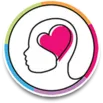For her PhD dissertation research, Michele, our CEO, focused on the model of treatment practiced at Attachment Healing Center, Healing in Resonance. The study looked at the four-week psycho-educational groups conducted with the parents of children identified as having disorganized attachment. There were five adults and five children in the study. The adults were either birth, step or adoptive parents While the study did not focus on the therapy, the participants referenced the therapy they were receiving while taking the groups.
The following are the themes that emerged from the study:
- Parents must take ownership to shift their parenting approach
- Parent must be willing to do their personal work
- Parent seen as the agent of change
- The relationship with the facilitator/therapist is key
- It is important for the parent to address the child’s need and not their behavior
- Parents experienced gratitude and hopefulness from seeing rapid change come about in their child’s behavior.
As a result of this change in perspective, the parents reported:
- Feeling empowered
- Emotional regulation for the parents is important
- When gratitude for doing things well is expressed from the therapist to the parent it makes it easier for the parent to express gratitude to their child
- Parent self-care and support are essential to doing this work
- Parents felt fed by the information learned in the parent group
- The relationship with the facilitator/therapist must be nurturing
Change in the parenting style and family dynamics was reported as:
- Parents move from anxious to calm
- Family tone: from chaos to order
- Family relationships: from conflict to cooperation
- Emotional connection among family members improved
- Parent’s motivation inspires child’s motivation
- A stronger emotional connection with the parent helps the child overcome behavioral challenges
The themes around the treatment approach were identified as:
- The work is relationship based
- Parent as agent of change provides corrective intersubjectivity experiences for the child in relationship with the parent
- The change in parent-child intersubjectivity is accomplished by:
- Parent takes ownership for how they show up
- Parent sees behavior as need not willful acting out
- Parent is calm and in charge
- Parent changes first
- Parenting willing to heal first
- Parent willing to focus on self-care
- There is a positive focus among therapist, parent and child.
The themes around the group and the material taught were:
- Treatment approach requires a second brain
- Need more personalized homework after each group class
- Parents want more time to practice in the group
- Parents reported learning from the group process
- Parents want more role plays and examples during group class
- The most impactful information was:
- Left vs right brain; power of schemas
- Parent regulated first; parent self-care
- Behaviors as miscues, not willful acting out
Limitations of the study:
- Qualitative research so the findings cannot be generalized to a larger population
- Small sample size
- While the children were of diverse cultural and socio=economic backgrounds the parents were all White and from a similar socio-economic background.
- Researcher bias as the researcher is also an adoptive parent and lived through informal foster care and adoption.
Possible further research might be:
- Research the in-home therapy in addition to the training
- Quantitative study using heart-rate variability of the interventions
- Measuring cortisol levels as parent-child attunement is taught and practiced
